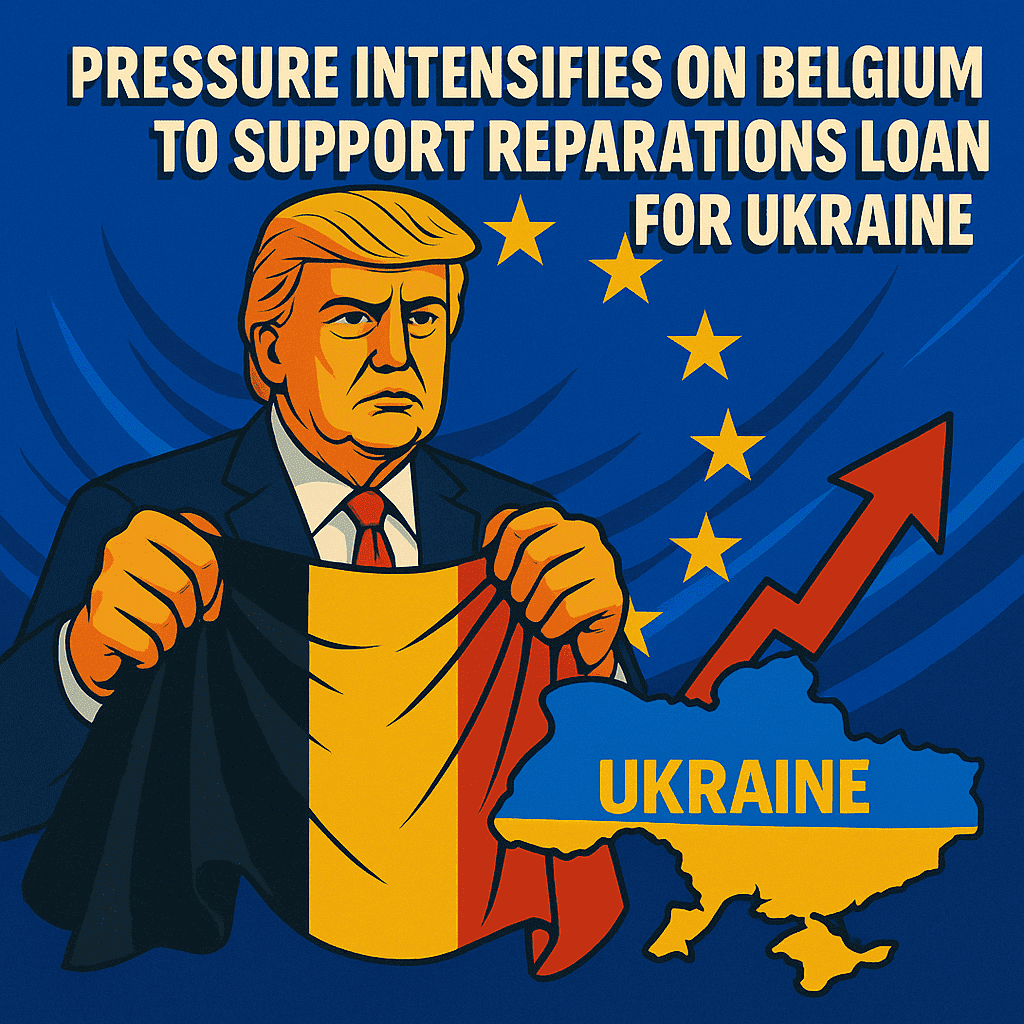Pressure Intensifies on Belgium to Support the Reparations Loan for Ukraine

Political momentum is building across Europe as leaders push Belgium to endorse the proposed reparations loan for Ukraine, a financing mechanism that would rely on frozen Russian assets held within the EU. The reparations loan for Ukraine aims to provide long-term, predictable funding for Kyiv without placing additional financial strain on European taxpayers.
The plan centres on roughly €140 billion in immobilised Russian central bank assets, most of which are located at Belgium-based Euroclear. For the proposal to move forward, Belgium’s approval is crucial — yet Brussels faces resistance from its own capital. Belgium argues that endorsing the reparations loan for Ukraine may expose the country to complex legal and financial liabilities under both European law and international investment treaties.
Belgian officials are demanding strong guarantees before committing:
shared financial risk across all EU member states,
protection against lawsuits linked to asset seizure, and
Clearer legal footing regarding the long-term management of frozen Russian funds.
EU institutions, however, argue that the reparations loan for Ukraine provides a unique opportunity to support Kyiv’s recovery while shifting responsibility onto Russia’s own resources. They warn that failing to act now could leave Ukraine underfunded heading into 2026, potentially destabilising Europe’s geopolitical posture.
If Belgium maintains its objections, the EU will be forced to consider less favourable alternatives — including issuing joint EU debt or leaving individual member states to arrange separate funding channels. Both options risk political division and slower financial support for Kyiv.
Diplomats involved in negotiations acknowledge that Belgium is under significant political scrutiny, especially as Kyiv’s financial needs intensify and the EU prepares for the December leaders’ summit.
Speculatively, if the reparations loan for Ukraine becomes the EU’s long-term model for using frozen sovereign assets, Brussels may establish new legal frameworks for managing seized assets in future conflicts — altering Europe’s approach to sanctions and international accountability.
For now, the fate of the reparations loan for Ukraine rests largely on whether Belgium accepts additional safeguards or continues to resist pressure from its European partners.


















































